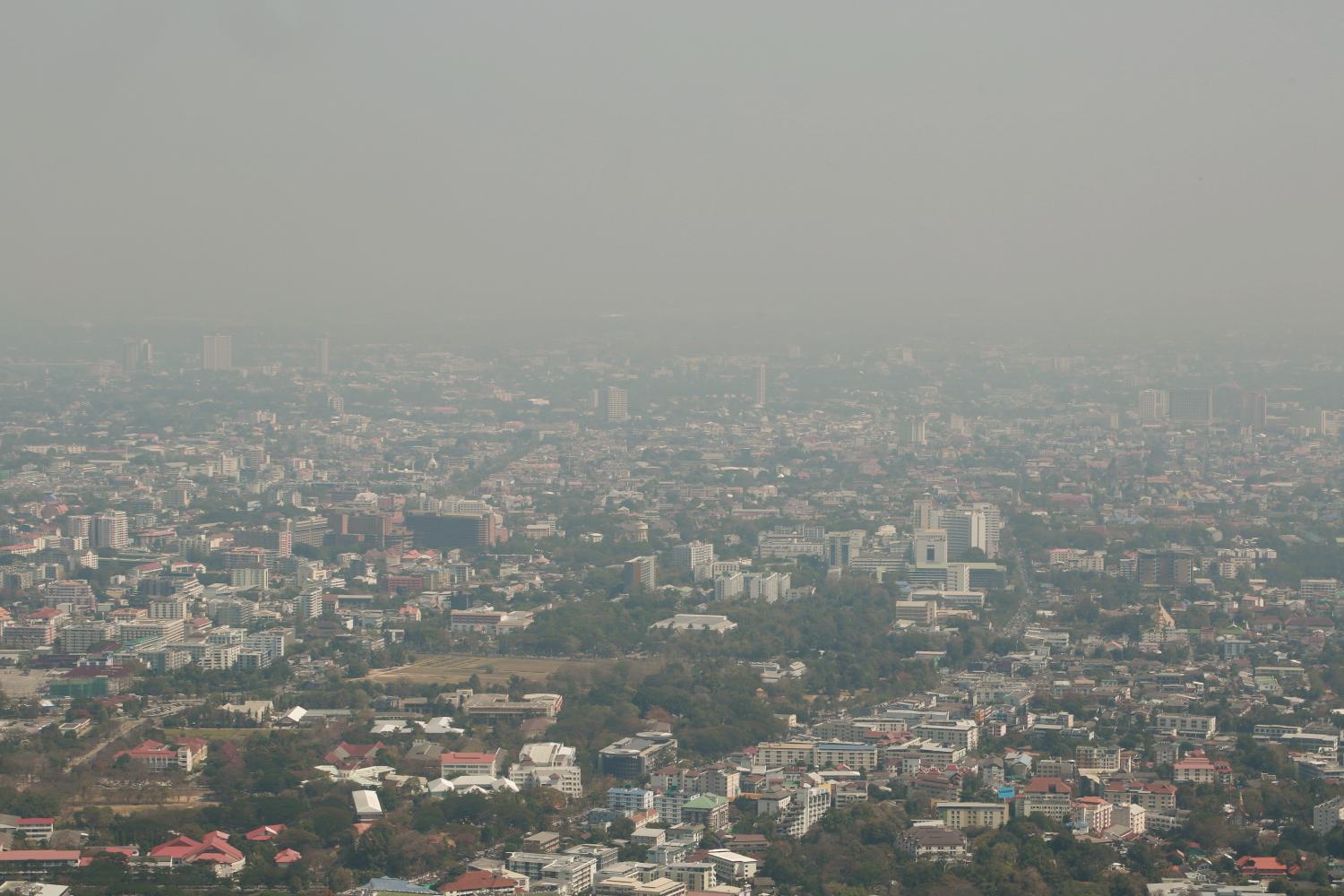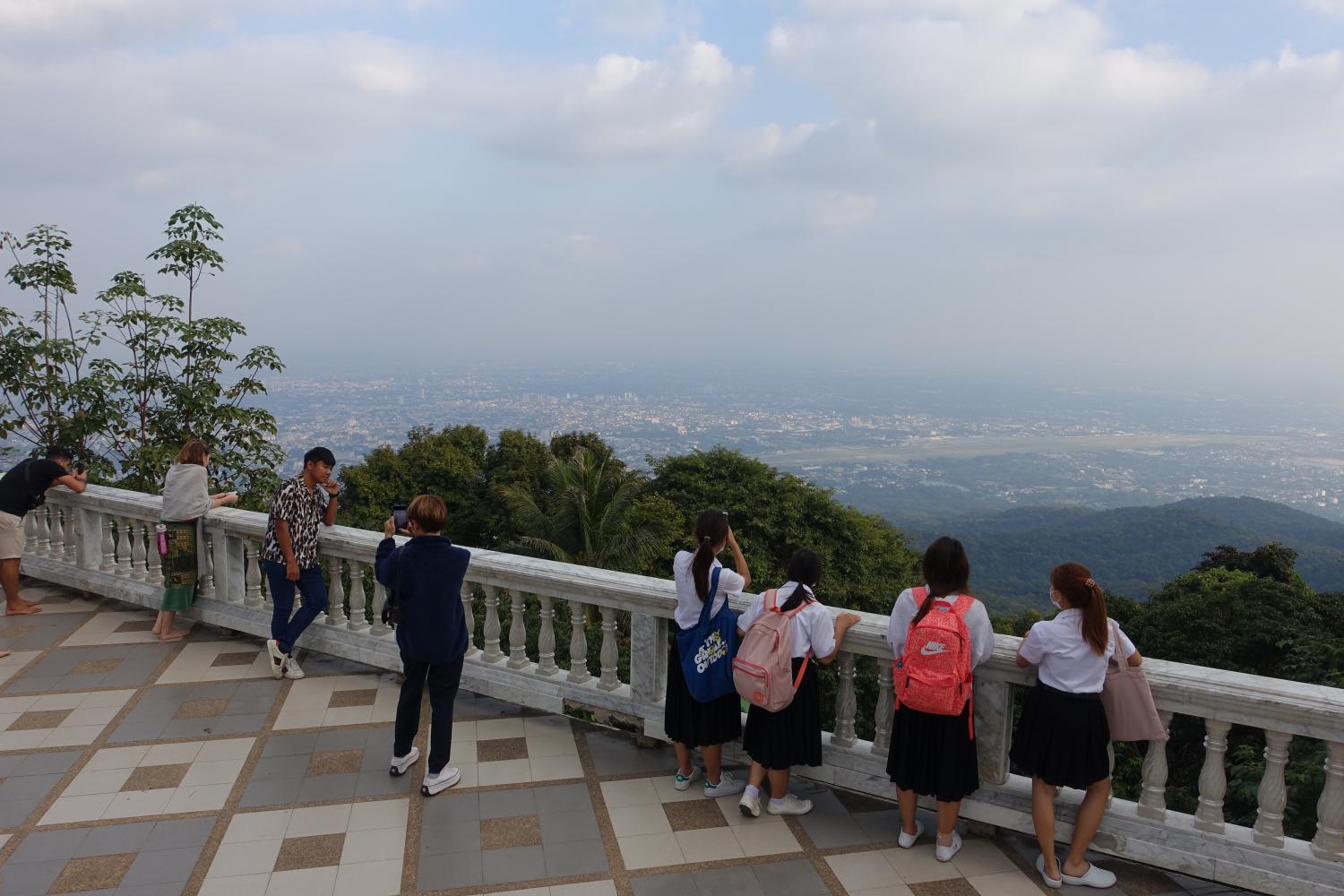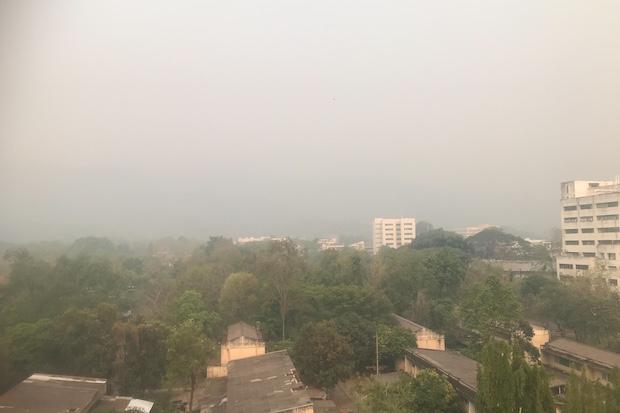
As the smog season draws nearer, Chiang Mai tourism operators are urging the government to accelerate the passage of the Clean Air Act and implement other mechanisms to reduce pollution from the agricultural sector.
Punlop Saejew, president of the Chiang Mai Tourism Council, said the PM2.5 haze is a complicated problem that requires stakeholders at all levels to help resolve, including carrot and stick mechanisms within the Clean Air Act.
This model offers benefits for those who follow the rules and imposes punishment on those who do not.
For instance, farmers who do not practice slash and burn farming should be rewarded by the government, with support for their crops, he said.
The law should also prevent forest burning by farmers who collect forest products to earn a living. This can be achieved by finding them another job that earns more income, said Mr Punlop.
The government should also establish a specific fund to reduce air pollution through a fundraising scheme in exchange for investor incentives, such as tax reduction, he said.
The fund could be used to transform local communities that burn fields by offering more environmentally friendly jobs, said Mr Punlop.
Other options include providing sufficient tools and equipment to reduce burning and smog, such as supporting air purifiers in communities and firebreaks during burning.
Mr Punlop and representatives from the private sector, including the Chiang Mai Chamber of Commerce and the Chiang Mai Tourism Business Association, have attended meetings with government committees and discussed the progress of such methods.

Visitors take snaps from Chiang Mai's iconic Doi Suthep mountain. Varuth Hirunyatheb
He said Chiang Mai University in collaboration with private operators aim to develop air purifier towers at several locations in the city.
The province also has a reservation system for agricultural burning called Fire D, which farmers can book for use.
Mr Punlop said he remains optimistic about the government's progress as it sent high-ranking representatives to discuss the issue with private operators and local officials.
However, operators remain worried about the perception of Chiang Mai as a city beset by heavy air pollution, especially among long-stay visitors and digital nomads, he said.
These segments tend to travel back to their home countries during March and April, the peak period for smog, said Mr Punlop.
He said Chiang Mai tourism is gradually recovering thanks to a rising number of foreign arrivals and domestic tourists, with several festivals planned during the high season such as Loy Krathong.

Chiang Mai's iconic Doi Suthep mountain is completely obscured by haze on April 7, 2023. Dave Kendall
